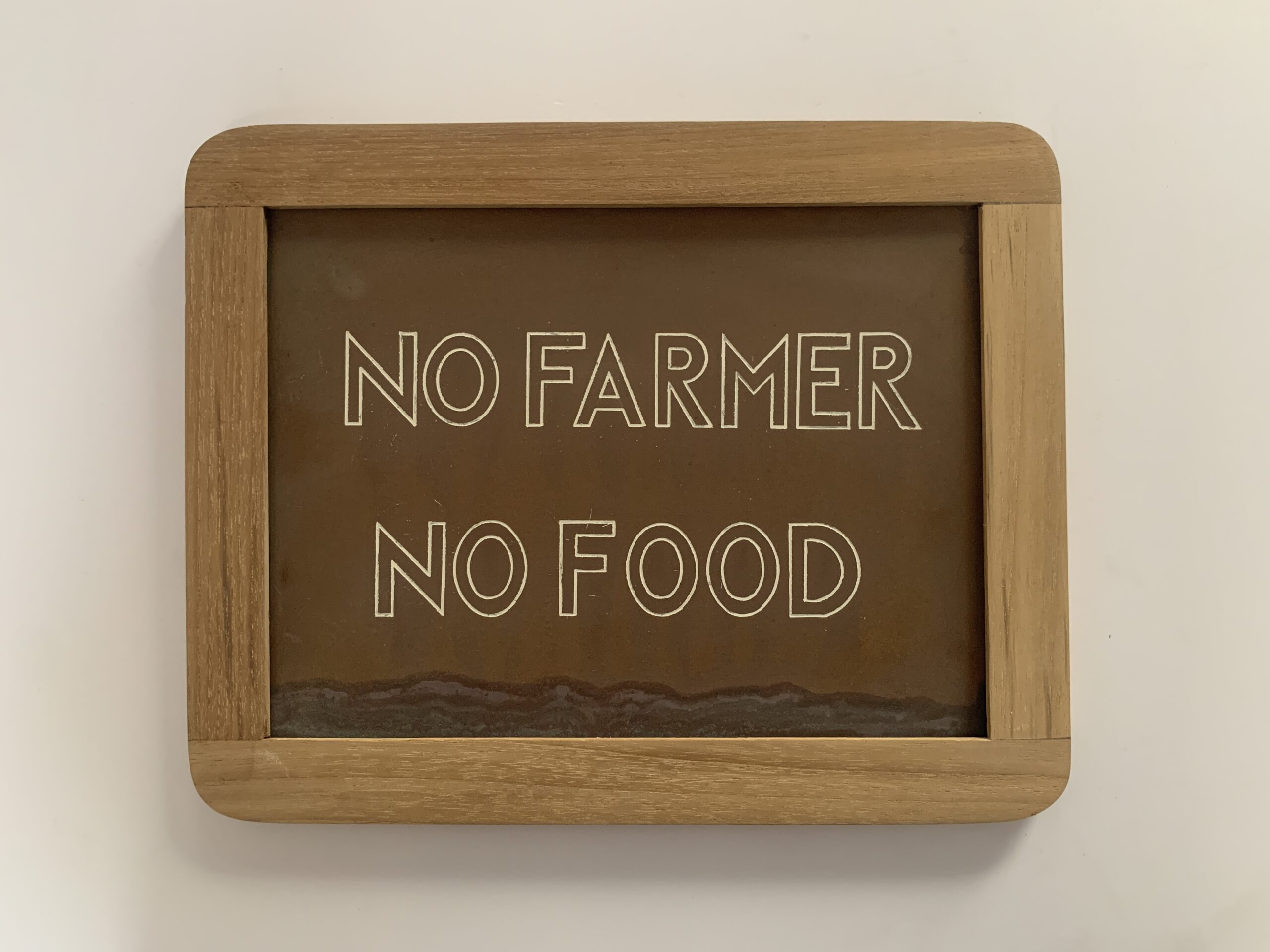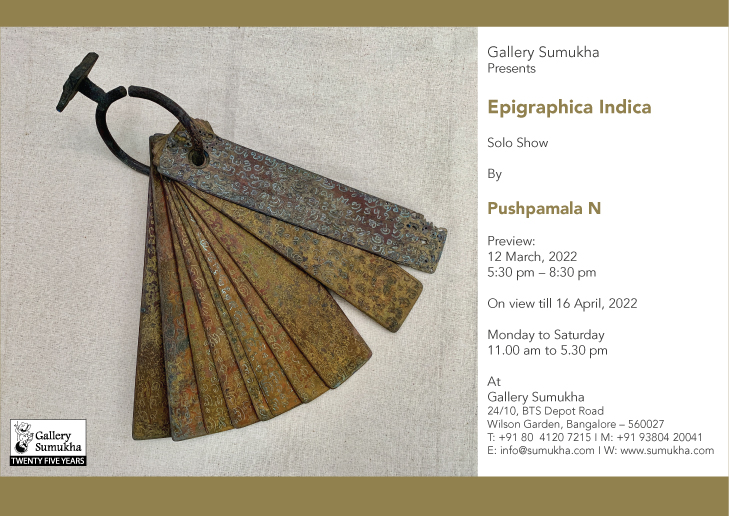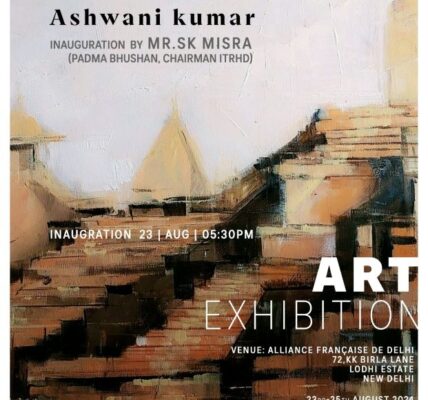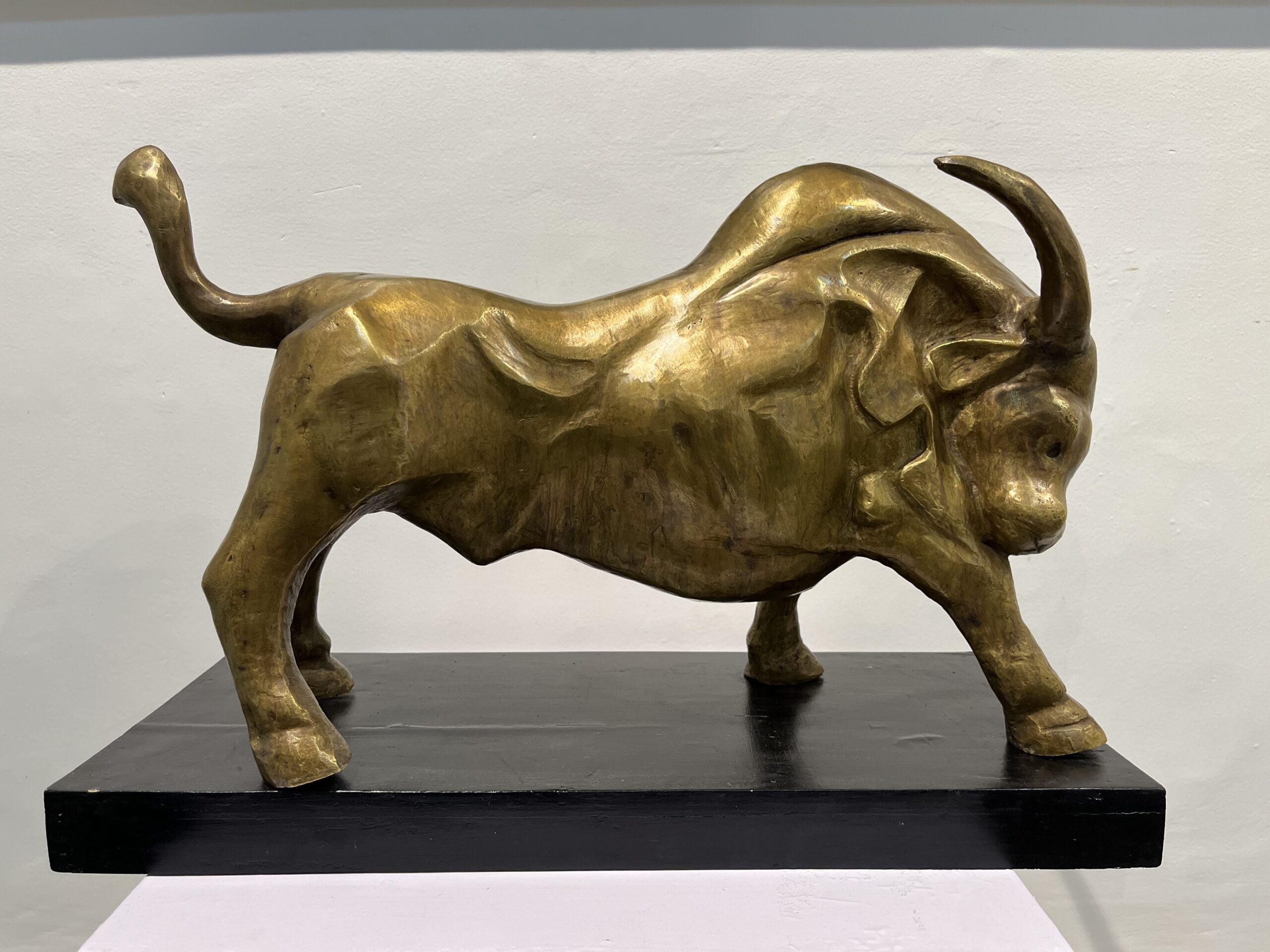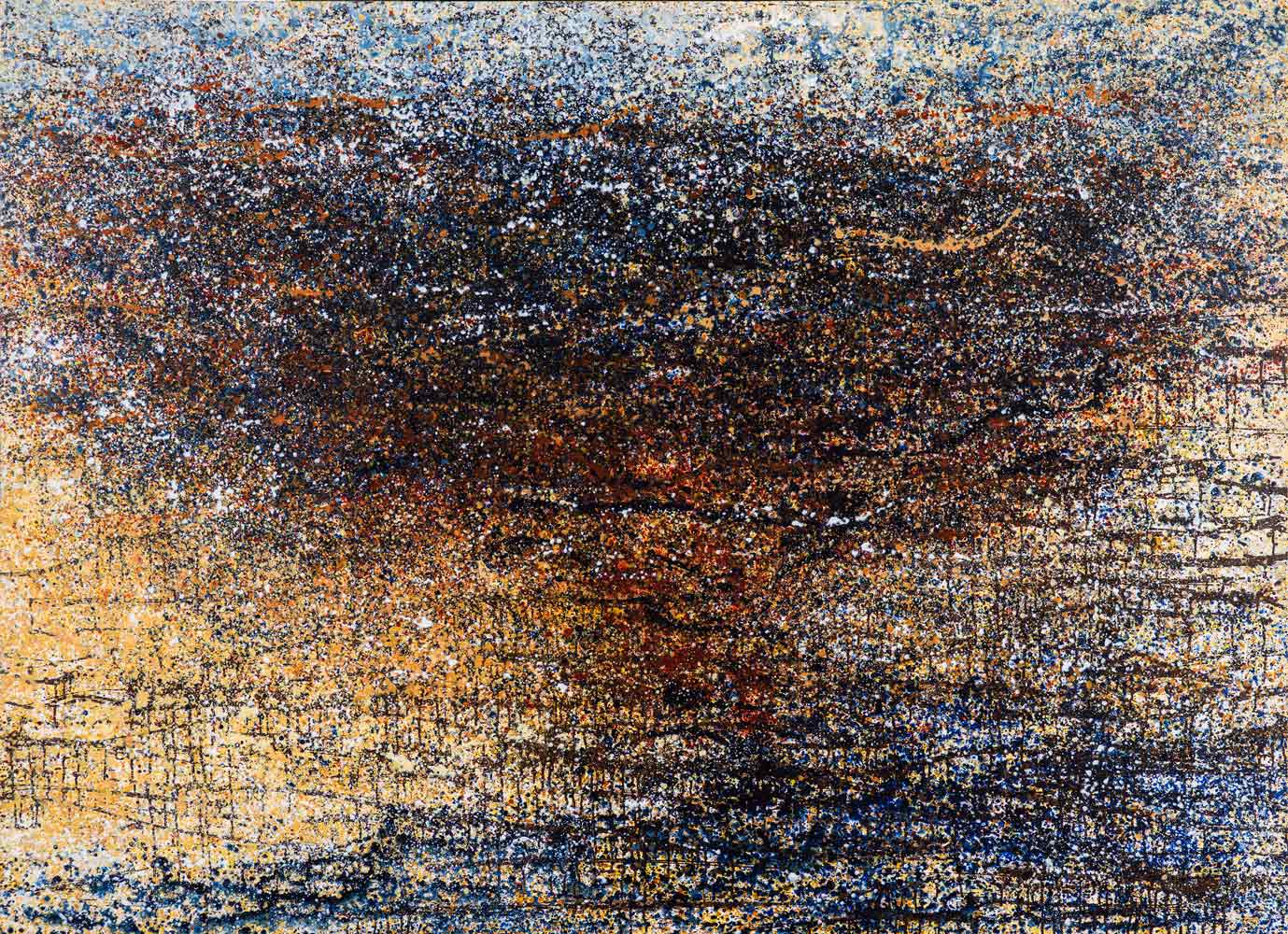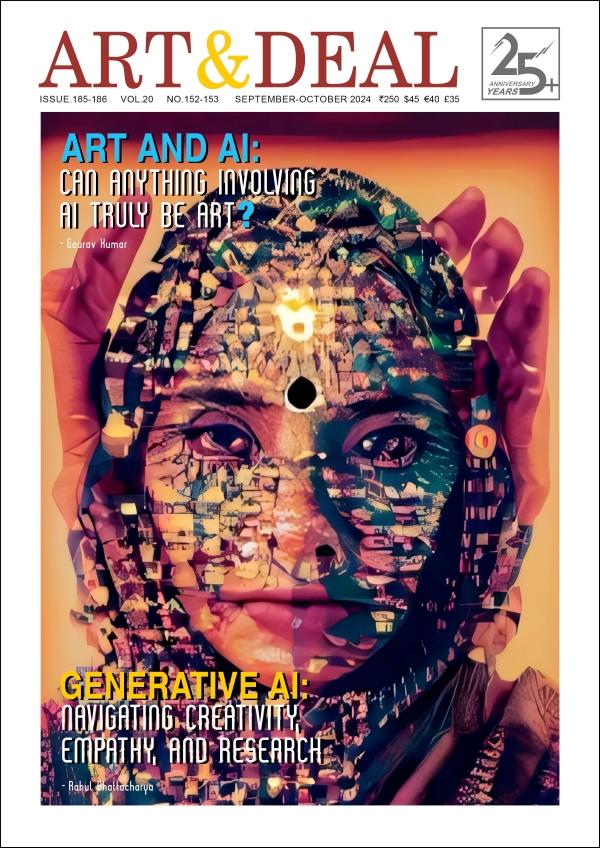Exhibition on view: March 12 – April 16, 2022
at Gallery Sumukha, Bangalore
Pushpamala, well known for her conceptual practice in performance photography and video, has been making sculptures recently. She now rekindles the artisanal practice of her earlier training as a sculptor to make discursive objects using epigraphy and text, extending her interest in 19th-century subjects like ethnography and anthropometry to epigraphy, or the study of inscriptions. These works archive and memorialize both past history and history in the making.

Atlas of Rare and Lost Alphabets (2015-2018)
The set of a hundred sculptures called Atlas of Rare and Lost Alphabets was inspired by a chance encounter with a vitrine containing ancient inscriptions incised on copper plates while on a visit to the archaeological museum in Bengaluru. These copperplate sculptures, inscribed with old scripts of the Indian sub-continent, are painstakingly handmade by the artist in her own handwriting as unique artisanal works. The tedious process of transcribing the letters becomes a performative act reminiscent of scribes painstakingly copying manuscripts in medieval libraries. They look like mysterious documents of some unknown age, marked by time. They are ‘hidden transcripts’, a term coined by James C. Scott, which comes from anthropology and refers to secret languages of resistance and cultural preservation as veiled discourses.
Nara (2020-2022)
Nara (Slogans), a set of fifty works, commemorates the slogans and poems of recent popular protests in India. Words and images are etched onto copper plates, treated with patinas and framed to look like school slates. The ephemeral materials of the street are turned into contemporary inscriptions.
Pushpamala N, 2022
About the Artist:
Pushpamala N. has been called “the most entertaining artist-iconoclast of contemporary Indian art”. In her strongly feminist and subversive work as a photo and video artist, sculptor, performer, writer and curator, she seeks to intervene in the dominant cultural and intellectual discourse. As one of the pioneers of conceptual art in India and a leading figure in the feminist experiments in subject, material and language, her work is often polemical, looking at the idea of the nation state in an age of globalized neo-liberalism, using the idea of cultural memory to explore history and contemporary society with irony and wit. Beginning her career as a figurative sculptor, Pushpamala transitioned into casting her own body as various characters in the medium of photo-performance, video and live performance. She has been revisiting her sculptural practice recently, creating archives of objects.
Pushpamala did her BA and MA in Sculpture at the Faculty of Fine Arts, MSU, Baroda. She exhibits widely in India and internationally. She has been organizing talks and seminars for the last 25 years through her fictitious institution called Somberikatte (Idler’s Platform). She is the recipient of the National Award 1984, Gold Medal at the VI Triennale India 1986, Karnataka Rajyotsava Award 1986, Karnataka Shilpa Kala Akademi Award 1997, the Karnataka State Jakanachari Award 2015. Her works are in the museum collections of the MOMA (New York, USA); Tate Modern (London, UK); Centre Pompidou (Paris, France); Art Gallery of New South Wales (Sydney, Australia); National Gallery of Modern Art, Kiran Nadar Museum of Art, Lalit Kala Akademi (Delhi, India) and Museum of Art and Photography (Bangalore, India) to name a few. She was Artistic Director of the Chennai Photo Biennale 2019. She is co-editing a book on K. Venkatappa with Deeptha Achar which will soon be published by Routledge.
She lives and works in Bengaluru.
Read More>> Please Subscribe our Physical Magazine